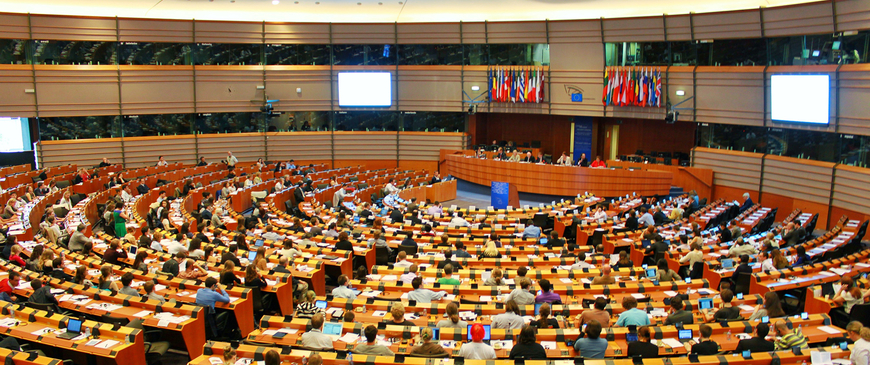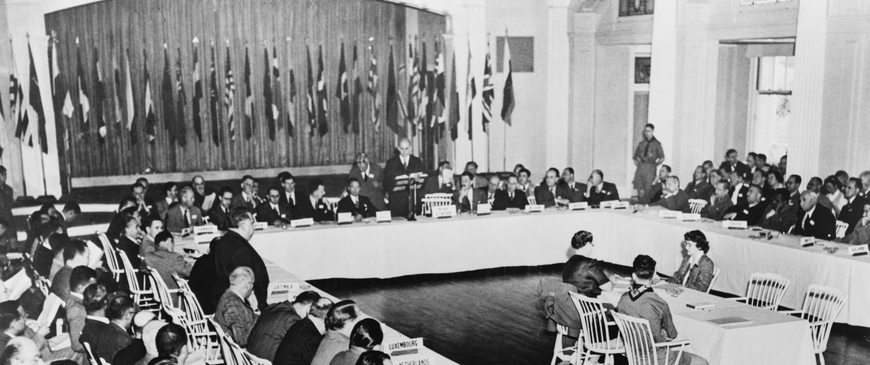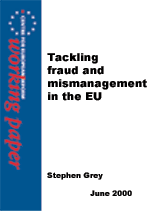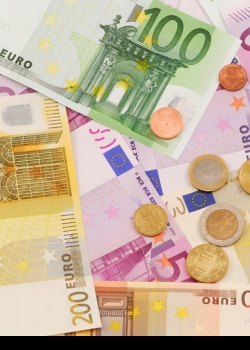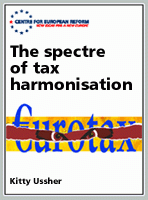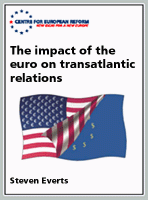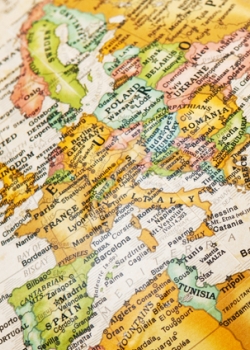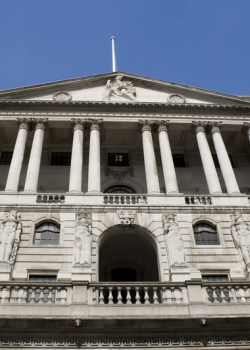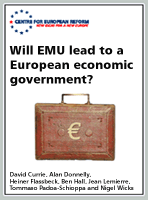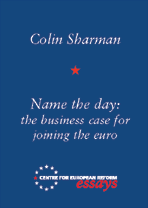Macroeconomics & the euro
Reforming the euro club
01 August 2000
And so farewell the euro-11. In future, the adhoc group of eurozone finance ministers will be known as the Euro Group, its powers beefed up along the lines dictated by the French government.
Issue 13 - 2000
28 July 2000
- Europe's new political flexibility, Steven Everts
- Reforming the euro club, Alasdair Murray
- The EU and world trade, Julie Wolf
Tackling fraud and mismanagement in the EU
02 June 2000
The European Union's political leaders have great ambitions for the years ahead: a successful economic and monetary union, a coherent and effective foreign policy, and the accession of up to 12 new member-states.
Beware the strong euro
01 June 2000
The claim may seem perverse, when the euro has barely crawled off its record lows, but there is a good case for saying that America rather than Euroland faces a looming currency crisis.
Issue 12 - 2000
26 May 2000
- Beware the strong euro, Alasdair Murray
- Europe's military ambitions, Klaus Naumann
- Mr Prodi's second chance, Charles Grant
- Federalism's last gasp, Ben Hall
A new economic model
03 April 2000
Slowly, and somewhat reluctantly, the EU is beginning to embrace economic reform. For years America's equity-orientated, shareholder-value-driven economic model appeared anathema to much of the continent.
Issue 11 - 2000
31 March 2000
- A new economic model, Alasdair Murray
- Europe's revolving door, Ben Hall
- The right charter, Ben Hall
- Europe and missile defence, Charles Grant
The spectre of tax harmonisation
04 February 2000
Europe's citizens, generally speaking, do not want their taxes set by Brussels. Taxation and representation still go hand in hand. So it is safe to assume that so long as people continue to look to their national governments to represent their interests (and turn out to vote for their national politicians in greater numbers than for MEPs), they will reject the notion of taxation policies being decided at European Union level.
The impact of the euro on transatlantic relations
07 January 2000
European Union is, almost by definition, subject to strain and tension. During the Cold War some stability was maintained by the common external threat that bound the NATO allies together under US leadership.
Europe's new economy
01 December 1999
Europe needs a new economic story. Its ability to compete in the knowledge-driven economy depends on how well it can translate science, technology and know-how into jobs, growth and economic success.
Issue 15 - 2000
26 November 1999
- Set a date for enlargement now, Heather Grabbe
- The unholiest of alliances, Charles Grant
- The "open method of co-ordination": Innovation or talking shop?, Kirsty Hughes
The case for "Mr Euroland"
01 October 1999
Most discussions about the euro focus on what it means for the politics and the economy of the EU. The actual and potential external impact of EMU is often ignored.
Needed: An EU energy tax
02 August 1999
There is no EU-wide energy tax, despite the fact that green parties now have a strong presence in the European political landscape and that such a tax could make the single market more effective.
Issue 7 - 1999
30 July 1999
- A golden opportunity for reform, Charles Grant
- Entrepreneurial Europe, Kitty Ussher
- Needed: An EU energy tax, Nina Marenzi
- A single market in crime, Ben Hall
A mandate for convergence
01 June 1999
The government is missing a trick by failing to encourage the Bank of England to play an active part in ensuring Britain's economic convergence with the euro-zone.
The prime minister has repeatedly said joining EMU requires the UK's "sustainable convergence with the economies of the single currency". This doesn't mean exchange-rate...
The prime minister has repeatedly said joining EMU requires the UK's "sustainable convergence with the economies of the single currency". This doesn't mean exchange-rate...
Will EMU lead to a European economic government?
07 May 1999
Both proponents and opponents of economic and monetary union (EMU) have always viewed it as an engine of further European integration and as another milestone on the road to an ill-defined 'political union'.
Name the day: The business case for joining the euro
02 April 1999
Tony Blair's presentation to the House of Commons of a national changeover plan for the adoption of the euro, last February, will come to be seen as a defining moment in Britain's path towards economic and monetary union (EMU).
The danger of centralisation
01 April 1999
During Oskar Lafontaine's brief reign as German finance minister, Europe seemed to veer towards much greater centralisation of economic policy-making. He argued that governments needed to forge a more centralised system of economic policy-making.
Europe's wake up call
01 April 1999
"We've made it!" That was the predominant feeling among leading continental politicians and officials in the weeks after January 1st. The many merchants of doom had been proven wrong.
Issue 5 - 1999
26 March 1999
- Europe's emerging political union, Charles Grant
- The danger of centralisation, Ben Hall
- Europe's wake up call, Steven Everts

